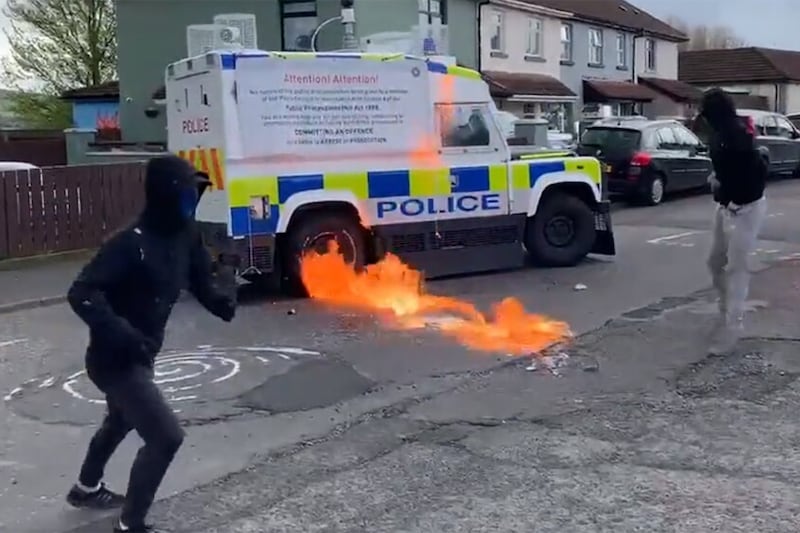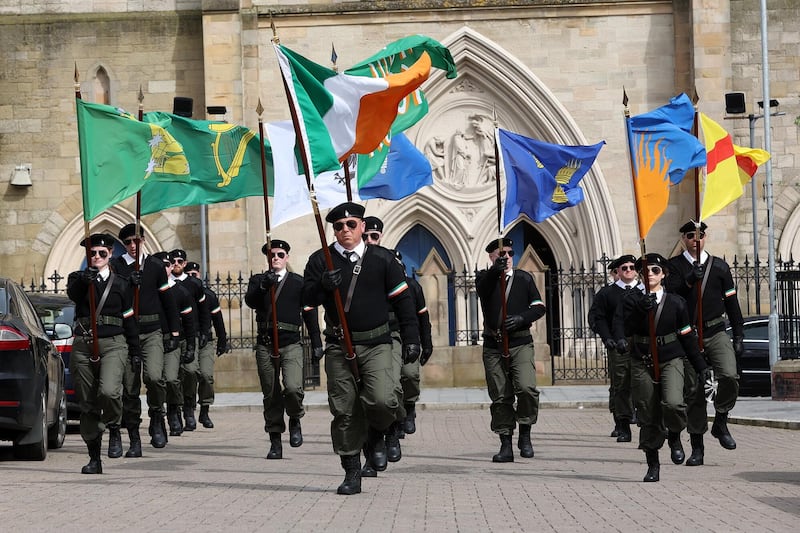FILES released by the Irish Military Archives on Friday indicate that a serving British soldier from Belfast served with the Irish Volunteers during the Easter Rising.
Sean Cusack was a member of the army reserve and was remobilised in August 1914 at the outbreak of the First World War.
At the same time he was director of training for the Irish Volunteers in Belfast.
When news of the Rising in Dublin reached the north, Denis McCullough, one of the city’s most prominent republican leaders, ordered Cusack to travel to Cavan to take charge of the Volunteers there.
The military authorities in Belfast unwittingly gave him leave to take part in a rebellion against them.
He changed from his British to his Volunteer uniform and proceeded to Cavan but was recalled when the Rising failed to spread into Ulster.
Cusack was subsequently arrested and given a medical discharge from the British army later in 1916.
He went on to play an active part in the War of Independence as a commander of the Irish Volunteers in Belfast and east Down.
In 1918 at the time of the conscription crisis he surrendered his British army pension, and by the time he was awarded a service pension by the new Irish state in the 1920s was ‘penniless’, ‘looked shabby and hungry’ and had to resort to pawning wedding presents because he could not afford to buy food for his family.
Cusack was one of a number of ex-northern IRA men who later joined the southern Irish Defence Forces and played a key role in establishing the new Irish army after 1922.
Others included Antrim volunteers Felix Devlin, Thomas Fitzpatrick (alias Bob McDonnell), Thomas Fox, Seamus McGoran, Sean O’Neill and Seamus Woods, as well as Frank and Hugh Martin and Sean McCabe from Derry, and Charles McAlister and Neill O’Donnell from Tyrone.
Thomas McNally had a long career in the Irish Defence Forces, serving for 25 years during which he was O/C of the Curragh Command with responsibility for internment camps that held republican prisoners and captured allied and axis personnel during the ‘Emergency’.
While the Antrim and Belfast IRA tended to take the pro-Treaty side during the Irish Civil War, volunteers from Armagh such as Francis Hannaway, Sean McGuill and Seamus Monaghan followed the lead of Frank Aiken in staying with the republican forces.
Some of the Northern IRA, including Michael Gallagher, Hugh McSparran, William Lynn and Frank McCarry, did not take sides or play and active part in the Irish Civil War but were involved in Michael Collins’s northern offensive of early 1922 which sought to destabilise the new Northern Ireland and maintain the unity of the IRA.
During the War of Independence and prior to the Treaty split in 1921, all of these men played key roles in prominent events including the shooting dead of RIC District Inspector Oswald Swanzy in Lisburn in August 1920 and the burning of income tax offices in Belfast the previous April. Seamus Woods claims to have taken part in a number of attacks against the Crown forces that resulted in the deaths of seven policemen in 1921.
The newly released files also shed further light on the activities of women members of Cumann na mBan during the revolutionary years.
One of the most active IRA units was based around Newry where women like Sarah O’Hanlon, Annie Maguire and Rose Beirne provided medical aid for volunteers wounded in engagements with Crown forces, sheltered IRA men ‘on the run’ in their own homes, transported arms on behalf of the IRA and undertook intelligence work.
Other aspects of the collection highlight the revolutionary family history of many prominent figures in Irish life today.
John Higgins of the East Clare IRA was awarded a pension for service during the War of Independence and with the anti-Treaty IRA during the Civil War. His son, Michael D Higgins, is the current President of Ireland.
The files show that President Higgins’s family was divided by the Treaty split, with his Aunt Kitty joining his father on the anti-Treaty side, while two uncles, Peter and Michael, both supported the Treaty.
The collection also includes the pension awarded to Christopher Stephen ‘Todd’ Andrews, whose grandson, Ryan Tubridy, is one of the Republic’s best-known media personalities.
In addition to pensions awarded to volunteers who served or were injured or disabled between 1916 and 1923, the collection includes files relating to the dependants of those who died during the conflict.
These include republicans executed by the Irish State during the Civil War, including Robert Erskine Childers.
Non-judicial killings, including controversial reprisals carried out by both sides during the Civil War, feature prominently in the collection.
The Irish state subsequently paid compensation to the families of IRA men, including some prisoners, who were killed by Irish army land mines in Co Kerry in March 1923, and to the dependants of three soldiers of the Irish army who appear to have been shot and beaten to death by the IRA in Adamstown, Co Wexford, also in March 1923.
A total of 13,000 new files have been released, containing information on 3,982 veterans of the revolutionary period.
This is the third in a series of releases which began in January 2014 and will continue until 2023.
The documents are available to the public on the website of the Irish Military Archives http://www.militaryarchives.ie/collections/online-collections/military-service-pensions-collectionmilitaryarchives.ie/collections/online-collections/military-service-pensions-collection.
:: Dr Marie Coleman is a lecturer in Modern Irish History at Queen's University, Belfast.
If your family has any old letters, photographs or stories connected to the Easter Rising 1916 please email digital.editorial@irishnews.com








